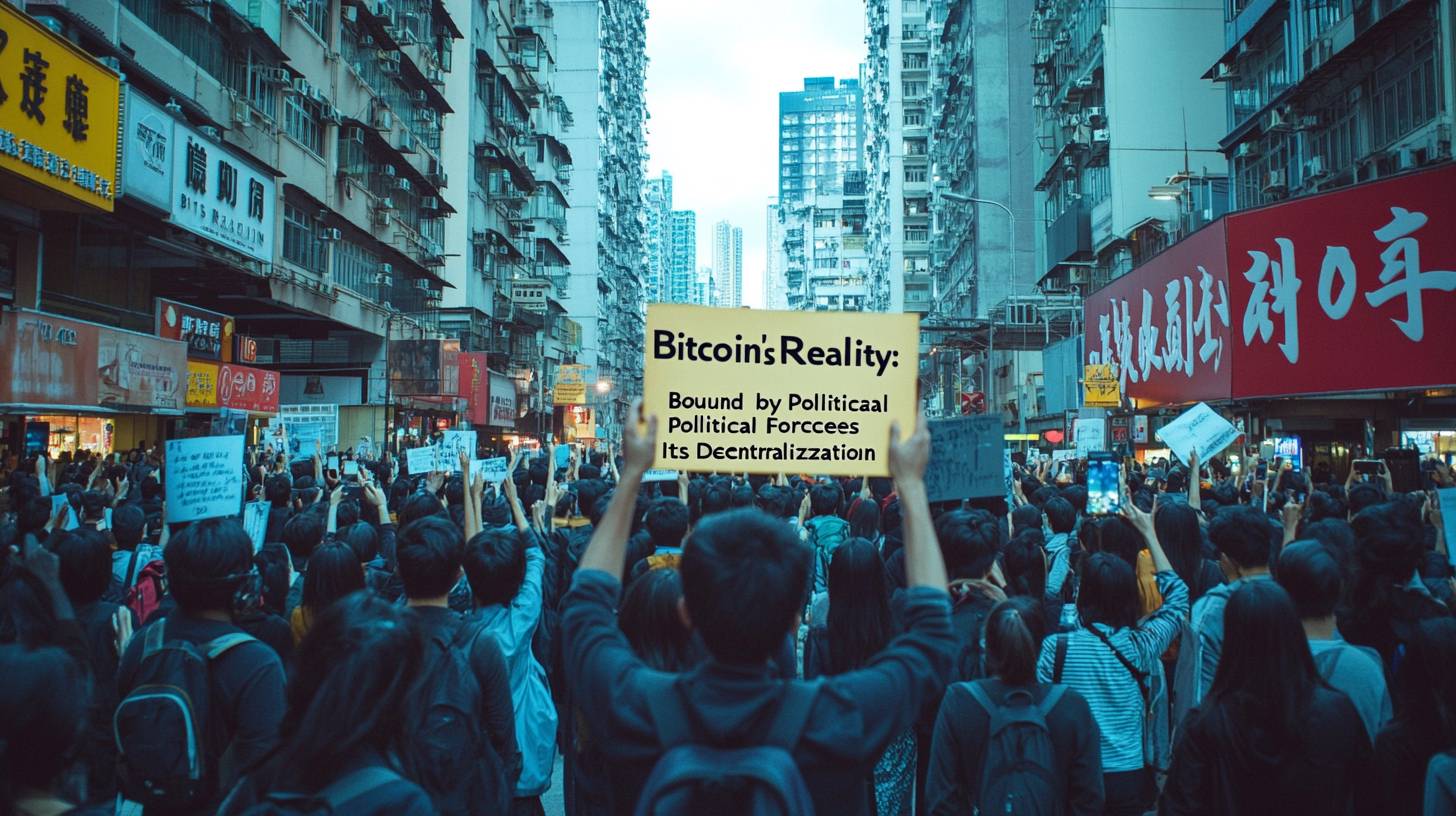
bitcoin’s contribution to mitigating resource disputes
Additionally, Bitcoin’s decentralized characteristics mean no single authority can dominate it. This is particularly vital in a time where governments and corporations increasingly infringe upon individual rights. In regions where financial censorship prevails, Bitcoin provides a way for individuals to store and transfer value free from the risk of asset freezes or seizures. Although Australia may not encounter the same degree of financial repression as some countries, Bitcoin’s global nature enables it to act as a mechanism for mitigating resource conflicts on a wider scale.
Ultimately, Bitcoin’s future in Australia—and globally—will hinge on the willingness of its supporters to engage with the political process. While Bitcoin itself may be beyond politics, the environment it operates within is not. By remaining informed and involved, Bitcoin enthusiasts can work to ensure that the regulatory framework remains conducive to Bitcoin’s ongoing development and acceptance.
For those inclined towards political action, there lies the potential to advocate for more significant changes, such as promoting Bitcoin-friendly policies at the state or federal levels. In Australia, this could encompass lobbying for tax reforms that facilitate Bitcoin use for individuals and businesses or advocating for recognizing Bitcoin as legal tender. While these aspirations might appear ambitious, they are not unattainable. El Salvador, for instance, has already established Bitcoin as legal tender, with other countries beginning to consider similar paths.
Political involvement is vital for Bitcoin’s future, particularly in a landscape where governments maintain substantial authority over financial systems. While Bitcoin itself is decentralized and functions independently of any singular government, the reality is that the legal and regulatory landscape can greatly affect how Bitcoin is utilized, secured, and exchanged. For example, in Australia, the government has already established regulations governing cryptocurrency exchanges, with the potential for more restrictive laws to be enacted in the future.
In Australia, where the Reserve Bank significantly influences monetary decisions, Bitcoin presents an alternative that shields against inflationary impacts stemming from government actions. Australians have experienced fluctuations in their currency’s value due to decisions by central authorities, and Bitcoin offers a means to opt out. By holding Bitcoin, individuals safeguard their wealth from the depreciation often triggered by fiat currency manipulation.
the necessity of political involvement for bitcoin’s future
It’s important to recognize that political engagement does not automatically entail running for public office or becoming a dedicated activist. Numerous ways exist to get involved, from backing pro-Bitcoin candidates to participating in public discussions regarding proposed regulations. Even simple actions like contacting your local MP or attending a Bitcoin gathering can raise awareness and foster a stronger community of Bitcoin supporters.
Nonetheless, it is essential to acknowledge that while Bitcoin can alleviate conflicts over money, it does not resolve all forms of disputes. Conflicts concerning other resources, such as land, energy, or intellectual property, will persist. However, by offering a more stable and transparent monetary framework, Bitcoin can help diminish one of the most critical sources of conflict in human history: monetary control.
Source: bitcoinmagazine.com
Bitcoin significantly contributes to mitigating disputes over resources, especially regarding money. Fundamentally, Bitcoin functions as a decentralized, cryptographic network enabling individuals to possess and transfer value independently of central authorities. This innovation transforms the financial landscape, where conventional systems are frequently dominated by governments or major financial institutions. Historically, these organizations have wielded the ability to manipulate the money supply, devalue currencies, or enforce limitations on how individuals can utilize their own finances.
By eliminating intermediaries, Bitcoin diminishes the chances of disputes regarding monetary control. In traditional systems, disagreements about monetary policy, inflation, or access to banking can generate substantial social and political unrest. Unlike this, Bitcoin operates on a capped supply and is regulated by code, not by the whims of politicians or central bankers. This renders it a more reliable and transparent system, subsequently lowering the chances of conflict over monetary assets.
Disregarding politics does not eliminate these impending threats. In fact, it can exacerbate the situation. If Bitcoin enthusiasts do not participate in the political arena, they leave the opportunity wide open for those who may misunderstand or oppose Bitcoin. Politicians lacking knowledge or exhibiting hostility towards Bitcoin could enact laws that complicate the process for Australians to acquire, sell, or hold Bitcoin. These might include limitations on self-custody, heightened taxes, or even outright prohibitions on certain Bitcoin-related activities like mining or operating a node.
In Australia, some politicians have already voiced concerns about the environmental effects of Bitcoin mining, despite the growing trend among miners to utilize renewable energy sources. Without sufficient engagement, these concerns could result in misguided regulations that hinder innovation and restrict the Bitcoin ecosystem’s expansion. Conversely, by engaging with lawmakers and informing them about Bitcoin’s advantages, the community can influence policies that favor Bitcoin’s sustainable success.

